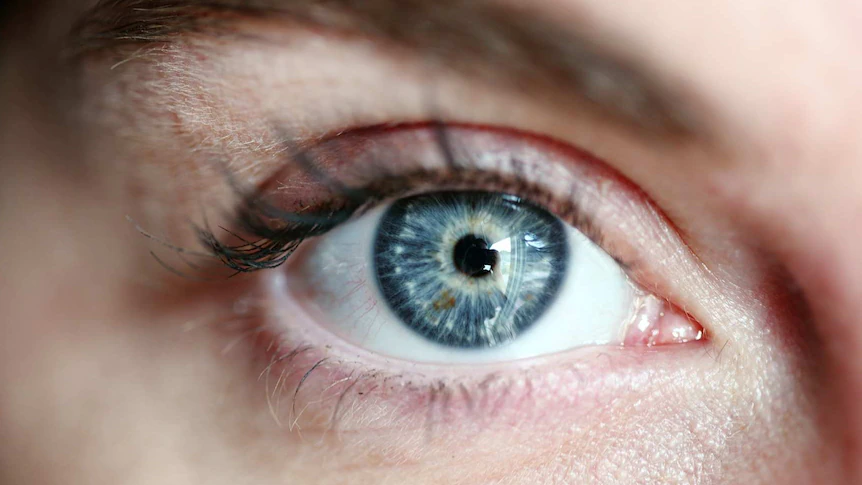LASIK is one of the common corrective vision procedures. It is also highly effective. However, in some rare cases, astigmatism was diagnosed in patients who went for LASIK surgery. If you want to know what happens in such cases, then this blog is for you. In this blog, we will discuss the causes, symptoms, and treatment options for astigmatism after LASIK. We will also provide tips on how to manage this condition.
Contents
What Is LASIK?
LASIK stands for “Laser-Assisted in Situ Keratomileusis” and is a type of refractive surgery used to correct vision problems such as nearsightedness, farsightedness, and astigmatism. The procedure involves using a laser to reshape the cornea, which is the clear front part of the eye, to improve the way light is focused onto the retina. LASIK is a safe and effective way to improve vision and reduce the need for glasses or contact lenses.
Is There Any Chance Of Astigmatism After LASIK?
 While LASIK is a highly effective procedure for correcting vision problems, including astigmatism, there is a small chance that a patient may develop or experience a worsening of astigmatism after the surgery. Astigmatism is a common eye condition that affects the way light enters the eye and is focused onto the retina. Normally, the cornea and the lens of the eye are smooth and round, and light passing through them is focused on a single point on the retina, producing clear and sharp vision.
While LASIK is a highly effective procedure for correcting vision problems, including astigmatism, there is a small chance that a patient may develop or experience a worsening of astigmatism after the surgery. Astigmatism is a common eye condition that affects the way light enters the eye and is focused onto the retina. Normally, the cornea and the lens of the eye are smooth and round, and light passing through them is focused on a single point on the retina, producing clear and sharp vision.
However, in people with astigmatism, the cornea or the lens is curved more in one direction than the other, causing light to be focused unevenly on the retina. However, the risk of developing astigmatism after LASIK is low, with studies showing that less than 1% of patients experience significant astigmatism after surgery. Patients need to undergo a thorough pre-operative evaluation to determine if they are suitable candidates for LASIK and to choose an experienced surgeon to perform the procedure to minimize the risk of complications.
How Can Astigmatism Occur After LASIK?
Some of the reasons why astigmatism may occur after LASIK include:
Under-correction or overcorrection
If the surgeon removes too little or too much corneal tissue during LASIK, it can result in an uneven corneal shape and cause astigmatism. Undercorrection occurs when the surgeon does not remove enough tissue to achieve the desired correction, while overcorrection occurs when too much tissue is removed. Both scenarios can lead to an uneven corneal shape, resulting in astigmatism.
Irregular healing
During the healing process after LASIK, the cornea may heal unevenly, leading to an irregular corneal shape and astigmatism. This can occur due to various reasons such as infection, inflammation, or other complications. Corneal scarring or haze can also occur during healing, which can affect vision quality.
Regressive changes
In some cases, the cornea may change over time, causing the vision to regress and astigmatism to develop. This can happen due to aging, changes in the shape of the cornea, or other factors.
Pre-existing astigmatism
LASIK can correct astigmatism, but if a patient has a high degree of astigmatism or an irregular corneal shape before the surgery, it may be more difficult to achieve perfect correction. In such cases, residual astigmatism may remain after the surgery or the patient may experience a worsening of astigmatism.
Certain factors related to the surgical technique used during LASIK. Such as the type of laser or the flap creation method. This can increase the risk of astigmatism development after surgery. For instance, a poorly centered or irregularly shaped flap can result in an uneven corneal surface and astigmatism.
Is Astigmatism After LASIK Treatable?
 Yes, astigmatism after LASIK is treatable. The treatment options for astigmatism after LASIK depend on the severity of the condition and the underlying cause. In many cases, the surgeon can perform a second procedure to correct the residual refractive error that is causing astigmatism.
Yes, astigmatism after LASIK is treatable. The treatment options for astigmatism after LASIK depend on the severity of the condition and the underlying cause. In many cases, the surgeon can perform a second procedure to correct the residual refractive error that is causing astigmatism.
It is important to note that while astigmatism after LASIK can be treated, it is not always possible to achieve perfect correction. Some patients may still experience residual astigmatism even after treatment. However, the vast majority of patients who undergo LASIK achieve significant improvement in their vision and experience a better quality of life.
Treatment For Astigmatism After LASIK
The treatment for astigmatism after LASIK depends on the severity of the condition and the cause. Here are some possible treatment options:
- Enhancement surgery: If the astigmatism is due to under-correction or overcorrection during the initial LASIK surgery, the surgeon may perform a second procedure called enhancement surgery to correct the residual refractive error. This is usually done several months after the initial surgery when the eye has fully healed.
- Glasses or contact lenses: In some cases, the surgeon may recommend wearing glasses or contact lenses to correct astigmatism. This is a non-invasive option that can be effective in improving vision.
- Corneal inlays or on-lays: These are small lenses that are placed on the surface of the cornea to correct astigmatism. They can be used in patients who are not suitable candidates for enhancement surgery or who prefer a non-surgical option.
- PRK (Photorefractive keratectomy): PRK is a type of laser eye surgery that can be used to correct astigmatism. It involves removing the outer layer of the cornea and using a laser to reshape the underlying tissue.
- Toric intraocular lenses: If the astigmatism is due to a change in the shape of the lens inside the eye, the surgeon may recommend replacing the lens with a toric intraocular lens. These lenses are designed to correct astigmatism and improve vision.
Preventive Measures For Astigmatism After LASIK
 There are several measures you can take to reduce the risk of developing astigmatism after LASIK:
There are several measures you can take to reduce the risk of developing astigmatism after LASIK:
- Choose an experienced surgeon: Make sure to select a surgeon who has extensive experience in performing LASIK surgery. This can ensure a high success rate.
- Follow pre-operative instructions: Before LASIK surgery, your surgeon will provide you with instructions on how to prepare for the procedure. It is important to follow these instructions carefully to ensure the best possible outcome.
- Attend follow-up appointments: Attend all follow-up appointments with your surgeon to ensure that your eyes are healing properly and any potential issues are detected early.
- Avoid rubbing your eyes: Rubbing your eyes after LASIK surgery can increase the risk of complications, including astigmatism. Try to avoid touching your eyes and use eye drops as directed to relieve any discomfort.
- Wear eye protection: If you participate in sports or activities that could cause eye injury, make sure to wear appropriate eye protection.
- Manage underlying conditions: If you have an underlying condition such as dry eye syndrome or keratoconus, make sure to manage it properly before undergoing LASIK surgery.
By taking these preventive measures, you can reduce the risk of developing astigmatism after LASIK and increase the chances of achieving clear and sharp vision.
Conclusion
In conclusion, astigmatism after LASIK is a possible complication that can occur due to various reasons. However, it is treatable with a variety of options. Such as enhancement surgery, glasses, contact lenses, and corneal inlays or onlays. It is important to seek the help of an experienced eye surgeon or ophthalmologist if you experience blurred or distorted vision after LASIK. They can provide a comprehensive eye exam and recommend the most appropriate treatment for your specific condition. Don’t hesitate to seek help and take the necessary steps to achieve clear and sharp vision.
Lasik surgery is a safe 10-minute procedure to help you get rid of glasses. EyeMantra offers the most advanced LASIK options including PRK, Femto LASIK, SMILE surgery, Standard LASIK, ICL, and Contoura vision. If you have any questions on LASIK surgery in Delhi, Lasik surgery cost, and Lasik procedure, call us at 9711116605 or email at [email protected].



Good post and right to the point. I am not sure if this is
truly the best place to ask but do you people have any thoughts on where to get some professional writers?
Thank you 🙂 Lista escape room
best online pharmacies in mexico
https://cmqpharma.online/# purple pharmacy mexico price list
mexican mail order pharmacies
reputable mexican pharmacies online: mexico pharmacy – п»їbest mexican online pharmacies
top online pharmacy india [url=https://indiapharmast.com/#]indian pharmacy paypal[/url] indian pharmacy paypal
indian pharmacy paypal: online shopping pharmacy india – cheapest online pharmacy india
indianpharmacy com: best online pharmacy india – buy medicines online in india
http://indiapharmast.com/# cheapest online pharmacy india
п»їbest mexican online pharmacies: mexican border pharmacies shipping to usa – mexican border pharmacies shipping to usa
mexico drug stores pharmacies [url=https://foruspharma.com/#]medication from mexico pharmacy[/url] buying prescription drugs in mexico
mexican pharmaceuticals online: reputable mexican pharmacies online – buying from online mexican pharmacy
canadian pharmacy online: canada pharmacy online legit – canada pharmacy online legit
http://canadapharmast.com/# canadian pharmacy ratings
mexican border pharmacies shipping to usa: mexican mail order pharmacies – mexican border pharmacies shipping to usa
canadian pharmacy review: legal to buy prescription drugs from canada – rate canadian pharmacies
indian pharmacy: best india pharmacy – online shopping pharmacy india
http://foruspharma.com/# buying prescription drugs in mexico
https://clomiddelivery.pro/# can i purchase clomid now
buy doxycycline online australia [url=https://doxycyclinedelivery.pro/#]buy doxycycline 100mg cheap[/url] doxycycline pills for sale
https://clomiddelivery.pro/# how to get cheap clomid
doxycycline price in india: price of doxycycline in india – doxycycline 20
https://doxycyclinedelivery.pro/# cost of doxycycline canada
amoxicillin 500mg price canada [url=http://amoxildelivery.pro/#]ampicillin amoxicillin[/url] can you buy amoxicillin over the counter
http://clomiddelivery.pro/# can i get clomid without rx
https://amoxildelivery.pro/# generic for amoxicillin
paxlovid generic [url=http://paxloviddelivery.pro/#]paxlovid covid[/url] п»їpaxlovid
http://ciprodelivery.pro/# buy generic ciprofloxacin
paxlovid cost without insurance: п»їpaxlovid – paxlovid for sale
http://ciprodelivery.pro/# buy cipro cheap
https://clomiddelivery.pro/# how can i get clomid online
buy ciprofloxacin over the counter [url=https://ciprodelivery.pro/#]ciprofloxacin generic[/url] buy cipro online canada
buy cipro no rx: buy ciprofloxacin – ciprofloxacin generic price
https://paxloviddelivery.pro/# paxlovid covid
http://doxycyclinedelivery.pro/# where can i buy doxycycline capsules
paxlovid pharmacy [url=https://paxloviddelivery.pro/#]paxlovid covid[/url] paxlovid generic
http://paxloviddelivery.pro/# paxlovid generic
doxycycline order uk: doxycycline tablets where to buy – where to buy doxycycline in australia
https://amoxildelivery.pro/# buying amoxicillin in mexico
buy cipro online [url=http://ciprodelivery.pro/#]buy cipro online[/url] buy cipro online without prescription
http://clomiddelivery.pro/# can you buy generic clomid without a prescription
http://clomiddelivery.pro/# buy clomid without prescription
doxycycline capsules price in india [url=http://doxycyclinedelivery.pro/#]how to buy doxycycline[/url] doxycycline online usa
http://paxloviddelivery.pro/# paxlovid pharmacy
amoxicillin online purchase: amoxicillin where to get – price of amoxicillin without insurance
https://ciprodelivery.pro/# where can i buy cipro online
https://paxloviddelivery.pro/# paxlovid cost without insurance
ciprofloxacin order online [url=https://ciprodelivery.pro/#]ciprofloxacin 500mg buy online[/url] buy ciprofloxacin over the counter
ciprofloxacin generic: buy cipro online canada – buy cipro without rx
buy cipro online canada: ciprofloxacin – buy cipro online without prescription